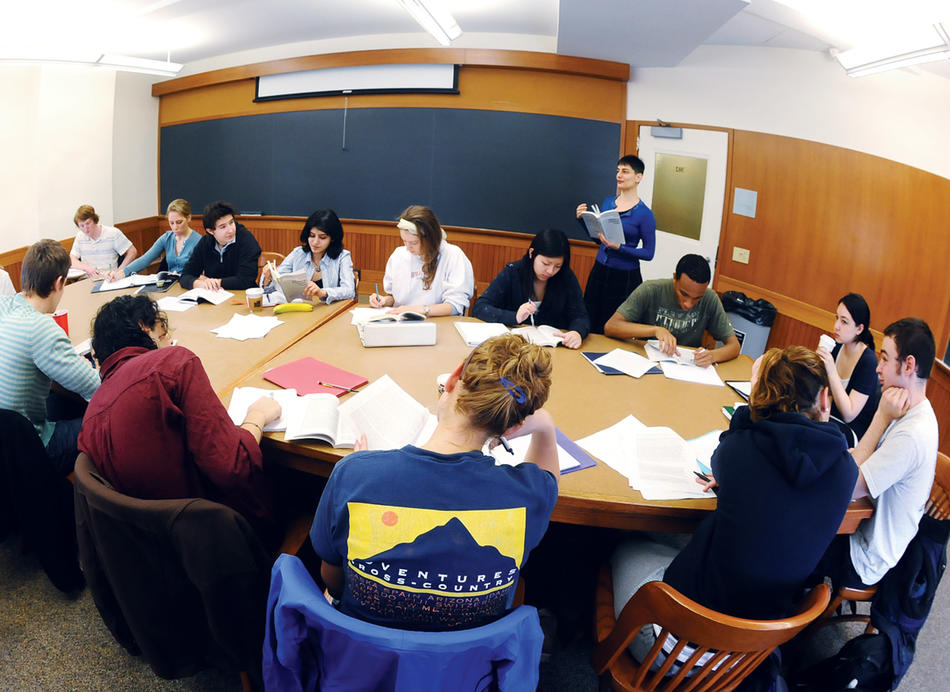Two of Columbia’s most devoted alumni have decided to invest in the future of the Core Curriculum by creating a $5 million fund for faculty endowment with an eye to inspiring an additional $5 million in gifts.
University Trustee-elect Jonathan S. Lavine ’88CC and University Trustee Gerry Lenfest ’58LAW, ’09HON are each donating $2.5 million to match, one-to-one, gifts to endow positions for five Core instructors. The assistant professsorships created under the new Lavine-Lenfest Matching Fund will provide ongoing support for four-year appointments for nontenured Arts and Sciences faculty who teach Literature Humanities or Contemporary Civilization.
The new endowed Core positions, says Dean Michele Moody-Adams, “will provide us the means to attract the most promising rising stars to teaching in the Core — helping to launch their academic careers while assuring the quality of the classroom experience for students.”
Lavine, who is chair of the College’s Board of Visitors and a co-chair of the Columbia Campaign, was formally elected to the Trustees in June and will begin his term on September 6. He has previously given in support of various initiatives, such as financial aid, Columbia Athletics (including the Campbell Sports Center planned for Baker Athletics Complex), and the Double Discovery tutoring program.
For Lenfest, one of Columbia’s most generous living donors, the gift is merely his latest in support of teaching at the University. In 2006, Lenfest donated $48 million to provide matching support for 25 new chairs in the Arts and Sciences and 10 new chairs at Columbia Law School, and in 2005 he created the Distinguished Teaching Awards for Arts and Sciences faculty.
“The Core Curriculum defines a Columbia College education,” Lavine says. “It’s both intense and faculty-intensive. If future generations of students are to experience the best of Columbia, we have to build resources for the faculty who make Core instruction so distinctive.”



